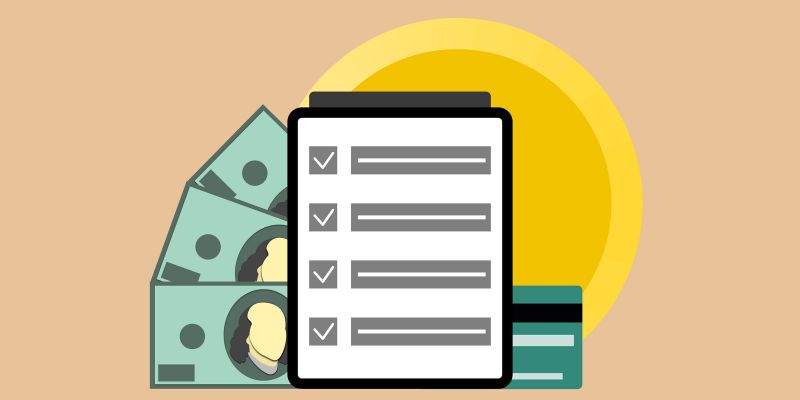Get To Know What Is an Electronic Transfer Account (ETA)
Jun 27, 2023 By Kelly Walker
Bank accounts are crucial for making financial transactions; it provides the gateway to send or receive payments from one end to another; other than that, they also have multiple benefits, from keeping a record of your transactions to keeping a safe and reliable way to park your money.
However, not all accounts are your typical checking and saving accounts; some are used to receive payments related to the federal government; these particular accounts are called Electronic transfer accounts.
An electronic Transfer account is a designated account used to receive federal payments for those individuals who don’t have a checking or savings account. These accounts are the alternative for receiving federal payments in direct deposits rather than checks from social security, Railroad Retirement Board, etc.
ETA’s are available to a wide list of departments, including the Office of Personal Management (OPM) retirement. They can use for civil and military wages, veterans benefits, and DOL/black lung. ETA’s are the best option for receiving a federal payment through direct deposit, which is a more convenient, secure, and faster way to receive your payment than checks.

Overviewing Electronic Transfer Accounts (ETA’s)
Electronic Transfer Accounts are available across banks and credit unions registered to offer ETA account providers with the US Treasury. The federal government insures all these accounts. The account holder can withdraw their money from ATMs, cash counters, or using their debit or credit card, whatever is allowed in their account terms.
One thing to note here is that you cannot withdraw from your ETA with a check. ETA, a federally controlled product, is not offered by investment firms, insurance companies, or check cashing companies. Only banks and credit unions that are federally insured have the leverage to provide ETA’s.
You don’t need a credit history to open an ETA account, but if you have abused your previous ETA account, then you may get into some trouble in opening an ETA account; otherwise, if a federally insured institution such as a bank or credit union is offering an ETA account you can open it without having a credit history as there is no such requirement of having a credit history.

What Are The Reasons for Closing an ETA?
There are multiple reasons behind the closing of your ETA account; the main it can be if you previously owned an ETA and violated the rules or abusively used it, chances are there that, sooner or later, your account will be closed, and in some cases, you may not be able to open a new one. Apart from that, other reasons for ETA closure are:
- One of the most common reasons for closure or non-opening of ETA is excessive over-drafting and failure to pay back these overdrafts.
- Sometimes miss, the use of your ATM card or pin by someone else and your carelessness in protecting it may lead to closing an account and can be ground for rejection in opening a new one.
- Your ETA account provider can close your ETA if you no longer use it for federal payments.
- Financial institutions offering you ETA’s have the full authority to close your account if they decide to change their policy not to provide ETA’s.
What Are The Benefits/Advantages of Having an ETA?
As the primary focus of Electronic transfer accounts is to make the process of federally disbursed payment hassle-free, these accounts are designed for individuals who, one way or the other, serve the US departments. Therefore they are designed with relaxed rules and regulations than other conventional accounts.
- There is no requirement for a minimum balance.
- Federal payments are automatically directed into your account; you can withdraw them through your ATM, cash counters, or credit card.
- You can also deposit your ETA from resources other than federal payments; it is up to you whether you want it.
- It provides you the facility of four monthly free cash withdrawals without any charges.
- You can also check your balance information for free at least four times monthly and check the details of your deposits and withdrawals.
- It’s a low-cost operating account, with monthly charges as low as $3.
- You can get a monthly account statement for your account as well.
- Your financial institution can offer you an interest on your ETA.
What Are The Drawbacks/Disadvantages of ETA?
Like other conventional accounts, ETA’s has some restrictions and disadvantages, sometimes making them less appealing. Still, as they are designed for federally administrated payments, people who own these are less concerned about them, but sometimes they make it hard for them.
- There is no check-writing option.
- ETA does not support Automated Clearing House (ACH) debits.
- You can’t make recurring bill payments.
Who can Open an Electronic Transfer Account (ETA)?
Here is who can open an electronic transfer account (ETA):
- Anyone who wants to receive federal payment can open an ETA; the payments include the following: Civil Service.
- Black Lung Benefits
- Military Retirement
- Railroad Retirement
- Supplemental Security Income (SSI)
- Veterans Benefits
How to Find an ETA Provider?
The best way to find an ETA provider is by looking at the official site of the United States Treasury Department. Other than that, you can also see an ETA sign at all participating institutions, whether
Final Thoughts
ETA’s Electronic transfer accounts are best for receiving federal payments; with their low monthly charges and facility to withdraw money through ATMs, cash counters, and Credit cards, they are easy to operate and manage as they are designed mostly for retired government professionals and other civil and military-related individuals to provide more benefits and advantages to the account holders. One main drawback of having these accounts is no check-writing option.








